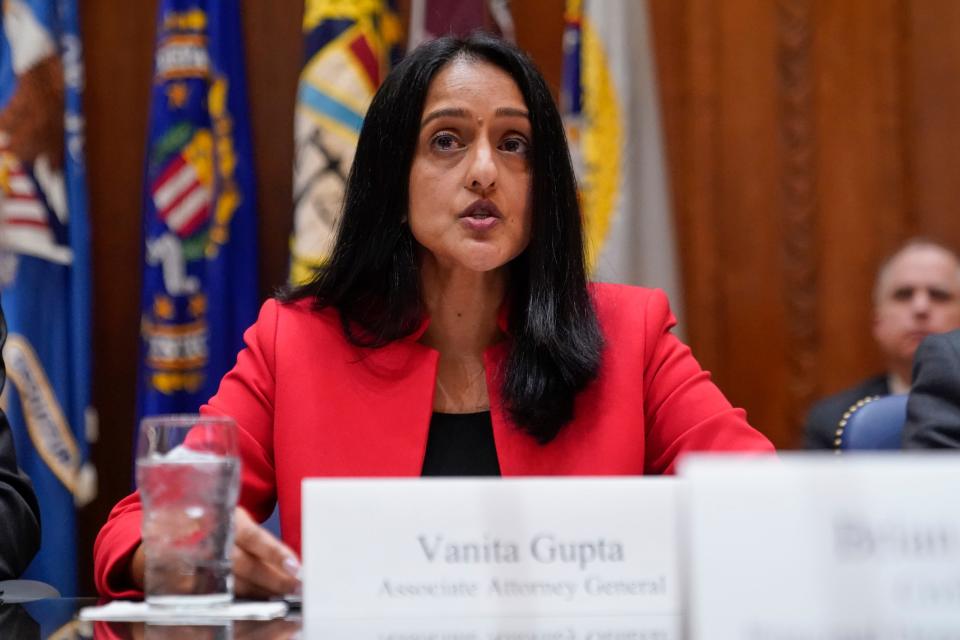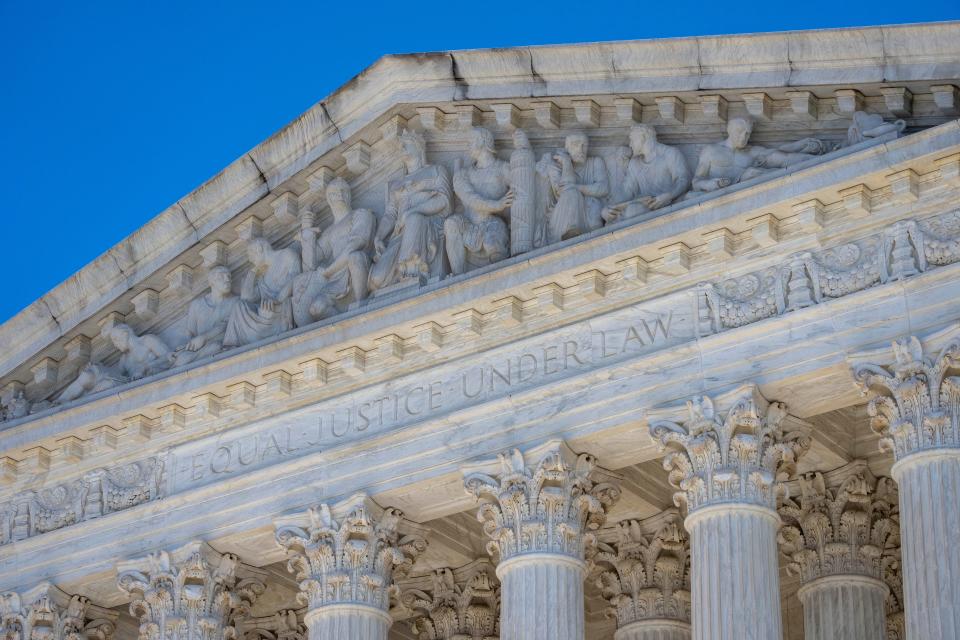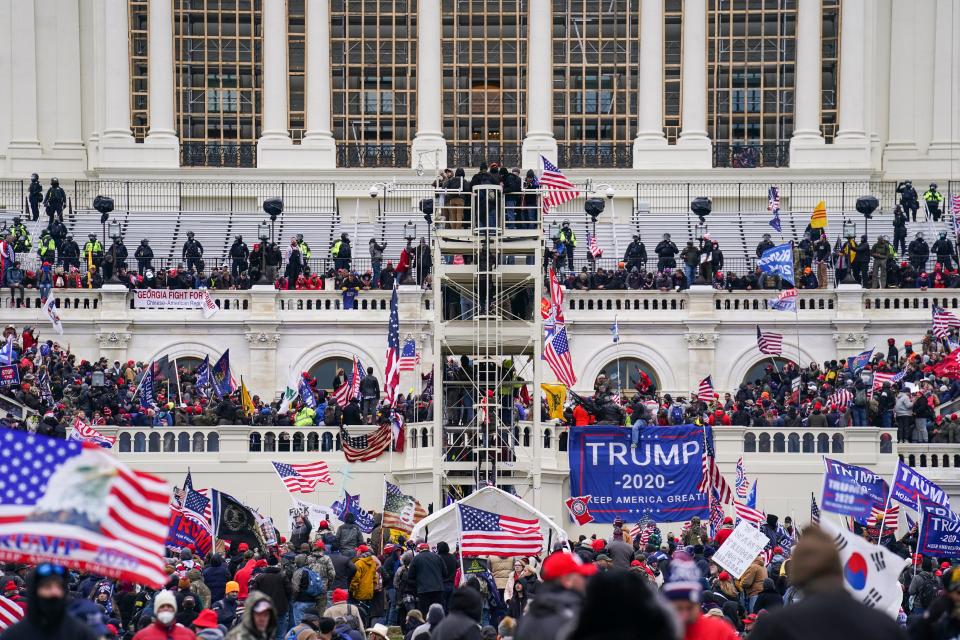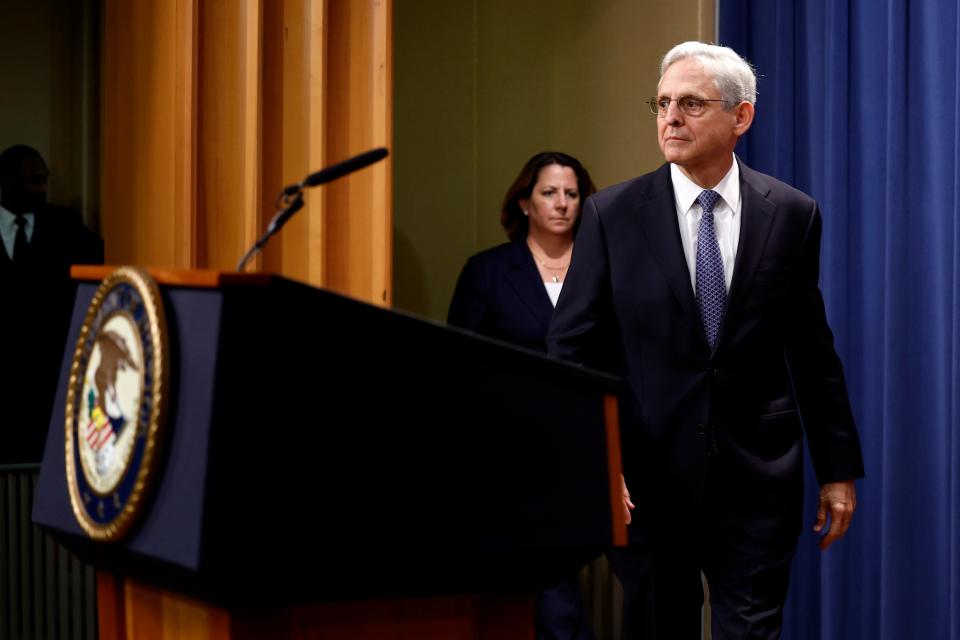'Invisible' crisis: Public defenders still underfunded, understaffed 60 years after key SCOTUS ruling
- Oops!Something went wrong.Please try again later.
Much of the nation’s public defense practice for the poor remains plagued by inadequate funding, short staffing and staggering caseloads as Justice Department officials urged a renewed commitment to the long-standing promise of a more equitable criminal justice system.
Sixty years after the landmark Supreme Court ruling that provided legal representation to poor defendants accused of serious crimes, Associate Attorney General Vanita Gupta described a system in “crisis.”
“The crisis in indigent defense around the country is too visible,” Gupta told USA TODAY, as the department prepared to mark the anniversary of the monumental ruling acknowledging Clarence Gideon’s right to counsel in the 1963 case known as Gideon v. Wainwright.
Since early this month, Gupta and other top Justice officials have been crisscrossing the country, from Florida to Nevada, to call attention to a crucial system in great need.
In some communities, including Tulsa, Oklahoma, there is an unusual promise: The group Still She Rises has tailored a legal defense program focusing on the representation of indigent mothers swept up in criminal and civil cases.

In Des Moines, Iowa, the good news is that public defense lawyers have all the technology available at any modern law office. The bad news: Jeff Wright, the state's chief public defender, said it is becoming increasingly difficult to find lawyers willing to do the work. Defenders are paid $56,000 to start, significantly below what private firms can offer and even some of the state's more urban counties, which start prosecutors at about $86,000.
The state's stable of contract attorneys also has declined significantly since 2014, from about 1,000 to 560.
"I think there is no question that having strong defense counsel and strong systemic solutions to the indigent defense crisis is vital to a well-functioning justice system," said Gupta, who as a young civil rights attorney worked to overturn the wrongful convictions of nearly 40 people in Texas. "I think the problem is when we don't even talk about this as a problem, and the problems are rendered invisible."

Addressing the 'crisis'
In an attempt to address some of the substantial gaps, Justice this week announced the creation of a new post in the department's Office for Access to Justice to assist state and local defenders in the search for additional resources.

In Miami, meanwhile, Deputy Attorney General Lisa Monaco outlined an effort to assess federal suspects' access to counsel while being held prior to trial in federal Bureau of Prison facilities.
The 100-day review, Monaco said, is aimed at promoting "consistent, timely access to counsel."
“Access to counsel is fundamental to the fairness and accuracy of our criminal justice system, and the Bureau of Prisons has a critical role to play in upholding this bedrock right," Monaco said. "The BOP works to facilitate access to counsel for those in its custody, but there is more we can do to make Gideon’s promise a reality."
Speaking to the National Legal Aid & Defender Association Thursday, Attorney General Merrick Garland also acknowledged the daunting challenges facing the public defense system.
"I know that public defense remains drastically underfunded," Garland said. "I know that public defender offices are experiencing serious recruitment and retention problems that only worsened during the COVID-19 pandemic...
"I also know that the pressure on criminal defense attorneys is enormous – there are no small cases when someone’s liberty is on the line."
The Jan. 6 effect
Few are more familiar with the public defense system's many stressors than A.J. Kramer.
The chief federal public defender in Washington, D.C., has been at the center of an unprecedented scramble to find lawyers for the wave of suspects charged in the investigation of the Capitol assault, the largest inquiry in Justice Department history.
More than 1,000 people have been arrested so far. And it's not over.

Not all have been in need of public defense, but the effort to address the demand has thrust Kramer, local district attorneys and federal public defenders across the country into the breach.
"Overwhelming," Kramer said, describing the demands placed on the defense bar.
Kramer said his office has handled about 150 Jan. 6 cases so far, in addition to the separate stream of unrelated cases. At any one time, Kramer said his lawyers are juggling 20 to 30 cases each.
More: Texas militia member sentenced to more than 7 years in most severe punishment in Capitol riot case
The Jan. 6 cases, Kramer said, have represented a "double-barrel" challenge for his staff, as a disproportionate number have gone to trial, requiring more work of the defenders.
"What we need in public defense is more lawyers," Kramer said.
A needed voice
Rachel Rossi, director of the Justice Department's Office for Access to Justice, said that public defenders – for all of their needs – would benefit enormously by being included in public policy decisions that most affect them.
"I think, historically, public defenders are just frequently not at the table and I think that's why there are a lot of issues with lack of resources...heavy caseloads, all sorts of issues that public defenders can't really advocate for themselves to improve," said Rossi, a longtime former public defender in Los Angeles.
"A robust, well-resourced public defense is critical to what prosecutors do because it ensures the integrity of an indictment, of a conviction," Rossi said.

A strong public defense system, Garland said, is essential to building "trust in the rule of law."
"That trust requires not only that justice be done, but that it be seen to be done," the attorney general said. "And only the presence of counsel zealously defending their clients’ rights can ensure public confidence in the legitimacy of judicial proceedings, regardless of their outcome."
This article originally appeared on USA TODAY: DOJ urges more help for understaffed, underfunded public defenders

